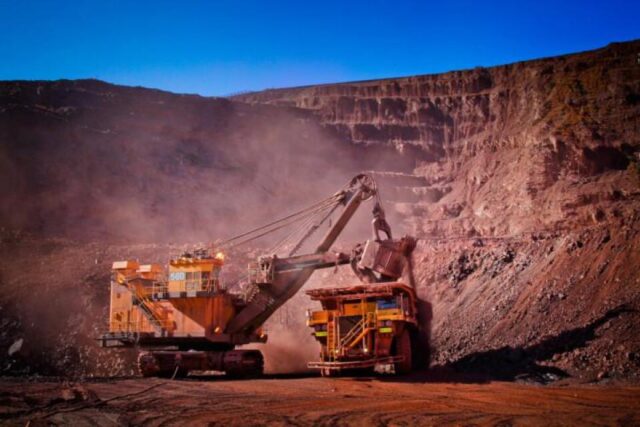Mining giant Kumba Iron Ore said that while the iron ore export channel had reopened, ongoing operational challenges had resulted in lower throughput than expected.
MINING giant Kumba Iron Ore said that while the iron ore export channel had reopened, ongoing operational challenges had resulted in lower throughput than expected.
In its full-year guidance update on Friday, Kumba, majority-owned by Anglo American, lowered its production guidance for 2022, 2023, and 2024, citing poor freight rail performance.
Parastatal Transnet has been plagued by poor performance due to a lack of trains, cable theft and poor maintenance, which has made it unable to meet demand.
According to Kumba, it now expects to produce 37 million tons of iron ore this year, which has decreased from previous guidance of between 38 million and 40 million tons.
Kumba CEO Mpumi Zikalala said: “Following a tough first half operationally, production and sales were disrupted in October 2022 by the two-week wage strike at Transnet with the subsequent delay and extended shutdown for the annual logistics maintenance programme adding further constraints.”
Zikalala said rail constraints throughout the year had led to a significant build-up of iron ore stockpiles at its mines and this had necessitated a decrease in production given the lack of available storage space.
“As a result, we have updated our production guidance for the full year 2022 to 37 million tons (Mt), while our sales guidance has been maintained at 36-37Mt,” she said.
Despite the decrease in production, its on-mine and C1 unit cost guidance had been maintained for the full year 2022.
“The unit cost guidance for Sishen is R500 to R530 per ton and for Kolomela it is R505 to R525 per ton. The C1 unit cost remains unchanged at US$44 per ton,” Zikalala said.
Looking ahead, Zikalala said Kumba revised its production guidance in line with expected rail performance over the next three years.
“For 2023, we expect production of 35-37Mt (from 39-41Mt) with the C1 unit cost remaining flat at US$44 per ton, reflecting the benefit of anticipated lower diesel prices and currency depreciation.
“Our focus in 2023 is to reduce the high levels of iron ore stocks and rebalance the value chain to ensure stable and resilient operational performance as well as improved finished stock levels at Saldanha Port to facilitate our sales guidance of 37-39Mt,” she said.
Zikalala said rail capacity was expected to step up following the full execution of this year’s major annual maintenance programme and the benefit of an extra set of trains, as well as the removal of speed restrictions and the implementation of weather-related mitigations.
“This, combined with ongoing improvements in rail performance supports our production outlook of 37-39Mt, from 41-43Mt, in 2024 and 39-41Mt in 2025,” she said.
Anglo American CEO Duncan Wanblad, during the company’s presentation, said: “As far as targets on Kumba are fundamentally constrained by where we think Transnet might end up at the end of the day, that is the lifeline in and out of that operation.
“We have a lot of work to do to get it back to 41 to 43 million tons of capability. However, it’s not impossible to do, that line is there, it operated there before, and there is some work that needs to be done on it.”
Wanblad added: “We’ve provided a lot of input, and we have provided our assistance, we have offered potential solutions along with other users of that line.
“I think we will slowly make progress toward getting it back there, but I think we have to be realistic in terms of thinking about how long it might take us to do that and what the road might look like to get there. So it is still slightly optimistic that these are viable ambitions for us to have.”
Kumba’s shares on Friday slid -1.28% to close at R507.45.
– BUSINESS REPORT








